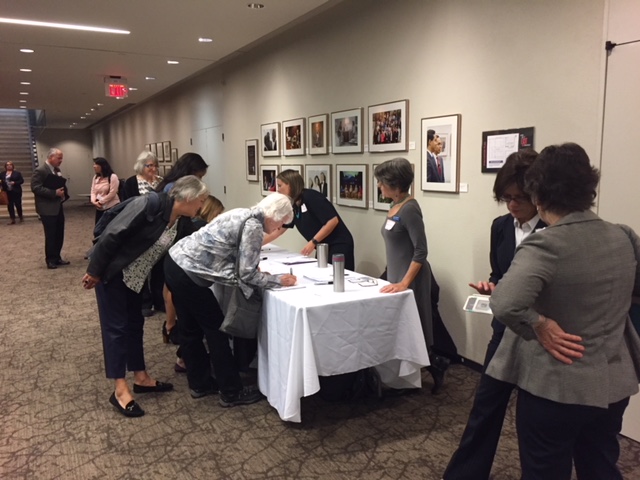AARP Hearing Center

How can we improve our cities and neighborhoods to enhance quality of life as we age? A recent symposium on aging in Austin emphasized a simple common theme: let holistic community solutions take center stage.
The Livability for Longevity symposium was co-hosted by the LBJ School of Public Affairs and AustinUP, a local non-profit aging organization focused on the fact that the greater Austin area has the nation’s fastest growing population of people age 55 to 64.
The panel discussions focused on health care and workforce development, among other aspects of the civic experience. Below, read about four moments that encapsulated the message and meaning of the day:
This Austin Law Firm Hires Older Lawyers
Panelist Laura Fowler, a managing partner at The Fowler Law Firm, advised older audience members on what she looks for when she hires at Fowler, an Austin-based law firm that defies the younger age demographics typical of most.
“As an employer, when someone doesn’t have a clue what we’re about, the interview ends right there,” she said. As for older job seekers who are self-conscious about interviewing to reenter the workforce, she said, “You are valuable. We need you.”
Kicking Social Isolation to the Curb
“What we’ve found is that only 20 percent of health is based on health center services,” said panelist Dr. Mark Carlson, geriatrician and founder of Be Well MD. The panel, called A Holistic Approach to Health Care Across Generations, focused on social isolation and other aspects that contribute to overall health.
Panelist Joyce Hefner, a licensed social worker, agreed, noting that gentrification can result in the loss of communities and children as seen in Austin’s Rosewood neighborhood. In Austin, she says, the impact of social isolation is felt for older persons who struggle with keeping their homes.
Maslow’s Hierarchy of Student-Senior Housing
“We don’t have enough senior housing,” said Mandy De Mayo, a community development administrator for the City of Austin. Also in need of housing are many of the 50,000+ students in the city.
The fix could be creating living partnerships between older and younger Austinites, says De Mayo. She references Maslow's hierarchy of needs. “Shelter and food are foundational,” De Mayo explains. “For everyone.”
Philosophizing over Sandwiches
Pacing up and down the stage like a daytime TV personality, author Tuck Kamin shifted the conversation from policy to perception, asking the lunch crowd what they believed about themselves, as older adults, and how those beliefs ought to shift.
One audience member said, “A lot of what holds us back are ideas we have about ourselves.” She added, “We hear stereotypes about older people, and then we accept those ideas when we grow older.” Kamin turned the question back around: “How do we change that?”
Follow AARP Texas, AustinUP and the LBJ School of Public Affairs on Facebook to stay informed of events, symposiums and workshops coming to a neighborhood near you.































































